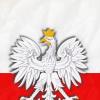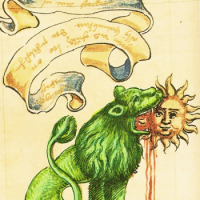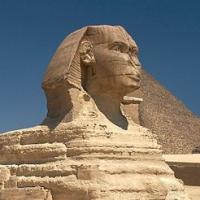Wpisy: 28
Język: English
Breto (Pokaż profil) 13 sierpnia 2015, 21:00:16
KStef:Thanks Breto.In English, at least around here, everything after the decimal point is individual digits, so that would be "one point seven five" rather than "one point seventy-five". As another example, pi would be approximated as "three point one four", not "three point fourteen".
I've found somewhere, that in French 99 is said "4x20+10+9".
[url]http://www.answers.com/Q/How_do_you_say_99_in_French[/url]
I have one more (but not date now):
1.75: One point seventy five?
And is there an other way to say that?
Sorry for that stupid questions. I just don't want to stay on my level
On a related note, the two-digit compounds are hyphenated in writing, so it is "seventy-five", not "seventy five".
And don't worry; none of these are stupid questions. Like I said, this is exactly the sort of thing that drives me nuts in other languages.
Breto (Pokaż profil) 13 sierpnia 2015, 21:00:16
mbalicki (Pokaż profil) 13 sierpnia 2015, 21:03:07
Breto:That makes sense, and there may well be more people who use "naught" or "nought", but in my personal experience, I've never heard the version starting with N in practical use. My comments were not informed by any research beyond personal experience. Certainly, the "oh" form is much more popular, even if it doesn't seem to lend itself to decade names.I'm fond of youtube videos by Brady Haran (chiefly “Numberphile”). And since he's an Australian working on his videos mainly in United Kingdom, in them you can hear “nought” quite a few times.

Breto:Well, it's just an English language thing, that in some circumstances one vocalises numerals from 1000 to 9999, grouping them not in thousands, hundreds, tens & ones but tens and ones of hundreds & tens and ones. Universally in English it's used in spelling years, but in Usonian English it's used more often: e.g. the White House is located at 1600 (“sixteen hundred”) Pennsylvania Avenue and it probably wouldn't bother any British person, but a number 5300 would be read by a Usonian probably as “fifty-three hundred”, while a Brit would prefer “five thousand three hundred”.mbalicki:In Esperanto I'd have no second thought before using one-word names like “nuloj”, “dekoj”, “dudekoj” &c. or two-word names like “nulaj jaroj”, “dekaj jaroj”, “dudekaj jaroj” &c. You can also go around (as in English) by saying e.g. “la unua jardeko (de la dudeka jarcento)”.That makes sense to me, too, but I meant more along the lines of the original post. For example:
I have 1982 apples. > The numeral would be read as "one thousand nine hundred eighty-two".
I was born in 1982. > The numeral would be read as "nineteen eighty-two".
KStef:2005 - two thousand (and?) five
pobotay:Your dates are all correct, if you include the "and" for 2005
Alkanadi:2005 - Two thousand and five. Or, two thousand five. You can include the word and if you want. I think you normally include it in writing but when speaking it is less common.This difference is also more on the line between British English and Usonian English. A Usonian would be fine with “two thousand five”, but for a Brit that would sound strange and Usonian way of phrasing it a Brit would say “two thousand and five”. So Arthur C. Clarke (an Englishman) pronounces his magnum opus's title as “Two Thousand and One: A Space Odyssey”, but Stanley Kubrick (a Newyorker) probably would speak out loud the title of his film as “Two Thousand One: A Space Odyssey”.
jagr2808 (Pokaż profil) 13 sierpnia 2015, 22:36:25
mbalicki (Pokaż profil) 14 sierpnia 2015, 00:08:12
jagr2808:In esperanto should you use comma or punctuation for decimal mark? Would you say unu kom' kvin, unu punkt' kvin or something different for 1,5?There are no real shoulds and shouldn'ts for Esperanto punctuation. No written rules were established by Zamenhof, nor the Academy, so one is free to use punctuation rules from one's native language.
However, in regard to the decimal mark, since we're aiming to have the most international language tool there is, I agree totally with PMEG on this one: „Ne uzu punkton anstataŭ komo ĉe decimaloj. Punkto estas uzata kiel decimala signo nur en kelkaj landoj. Esperanto, same kiel plej multaj landoj kaj lingvoj, uzas decimalan komon.”
Your example with „1,5” is pretty simple to read out loud: sign by sign „unu komo kvin”, but you can also go with „unu komo kvin dekonoj”, „unu kaj kvin dekonoj” or „unu kaj duono”. Some more complicated example as „42,708” would be „kvardek du komo sepcent ok milonoj”, „kvardek du komo sep nul ok”, „kvardek du kaj sepcent ok milonoj” or something along these lines.
nornen (Pokaż profil) 14 sierpnia 2015, 02:17:34
mbalicki:Koma aŭ komo?jagr2808:In esperanto should you use comma or punctuation for decimal mark? Would you say unu kom' kvin, unu punkt' kvin or something different for 1,5?There are no real shoulds and shouldn'ts for Esperanto punctuation. No written rules were established by Zamenhof, nor the Academy, so one is free to use punctuation rules from one's native language.
However, in regard to the decimal mark, since we're aiming to have the most international language tool there is, I agree totally with PMEG on this one: „Ne uzu punkton anstataŭ komo ĉe decimaloj. Punkto estas uzata kiel decimala signo nur en kelkaj landoj. Esperanto, same kiel plej multaj landoj kaj lingvoj, uzas decimalan komon.”
Your example with „1,5” is pretty simple to read out loud: sign by sign „unu koma kvin”, but you can also go with „unu koma kvin dekonoj”, „unu kaj kvin dekonoj” or „unu kaj duono”. Some more complicated example as „42,708” would be „kvardek du koma sepcent ok milonoj”, „kvardek du koma sep nul ok”, „kvardek du kaj sepcent ok milonoj” or something along these lines.
Bemused (Pokaż profil) 14 sierpnia 2015, 03:51:55
"Twenty nought five" I would understand as a string of numbers (20,0,5)
"Twenty ought five" I would understand as a year (2005 AD)
These words are becoming less commonly used.
More common ways of saying the year 2005 are:
- twenty oh five
- two thousand and five
- two thousand five
Also be aware British and American dates are expressed differently.
For example 1/2/2005 would mean:
- British day one, month two, year 2005.
- American month one, day two, year 2005.
For 1.75 you would say one point seven five.
For 1.759 you would say one point seven five nine.
For 163.759 you would say one hundred and sixty three point seven five nine.
After the decimal point numbers are named individually.
vejktoro (Pokaż profil) 14 sierpnia 2015, 04:09:17
'Naught' means 'nothing', but is never a numeral. I don't know what 'nought' is; this word is not used here.
I think what we are all saying, is that learners might wanna just avoid these forms altogether.
Sfinkso (Pokaż profil) 14 sierpnia 2015, 09:03:32
vejktoro:To the the English speakers where I live, 'ought' is a verb, never a number. The number is 'aught' and used to name the 2000s as stated in this thread. Some people even say, 'the aughty aughts.'In England nought is another word for zero, also used in prose to mean nothing. Naught is an American equivalent.
'Naught' means 'nothing', but is never a numeral. I don't know what 'nought' is; this word is not used here.
I think what we are all saying, is that learners might wanna just avoid these forms altogether.
mbalicki (Pokaż profil) 14 sierpnia 2015, 09:21:51
nornen:Koma aŭ komo?Oh yes, it should be „komo”.
 My mistake!
My mistake! 




